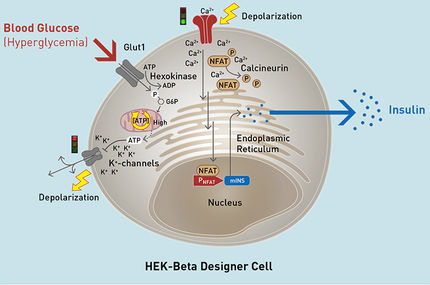The way you eat may affect your risk for breast cancer
How you eat may be just as important as how much you eat, if mice studies are any clue
Cancer researchers have long studied the role of diet on breast cancer risk, but results to date have been mixed. New findings published in Cancer Prevention Research suggest the method by which calories are restricted may be more important for cancer protection than the actual overall degree of calorie restriction.
"Understanding how calorie restriction provides protection against the development of mammary tumors should help us identify pathways that could be targeted for chemoprevention studies," said Margot P. Cleary, Ph.D., professor at the Hormel Institute, University of Minnesota. "Further identification of serum factors that are involved in tumor development would possibly provide a way to identify at risk individuals and target interventions to these people."
Previous studies have shown that intermittent calorie restriction provided greater protection from mammary tumor development than did the same overall degree of restriction, which was implemented in a chronic fashion. The researchers compared changes of a growth factor (IGF-1) in relationship to these two calorie restriction methods — chronic and intermittent — and tumor development beginning in 10-week old female mice at risk to develop mammary tumors. Their hope was to explain why intermittent restriction is more effective.
The overall degree of restriction was 25 percent reduction compared to control mice. Mammary tumor incidence was 71 percent in the control mice who ate the amount of food they wanted, 35 percent among those who were chronically restricted and only nine percent in those who intermittently restricted calories.
The researchers were initially surprised by these findings for several reasons. First, the prevailing wisdom is that the degree of protection from calorie restriction is proportional to the degree of mammary tumor prevention. Second, they originally thought that intermittent calorie restriction might enhance tumor growth due to growth factors being secreted in response to re-feeding, Cleary said.
This study "contributes to accumulating evidence that caloric restriction acts by altering hormone levels rather than by directly starving cancers of energy. In particular, lower levels of insulin are associated with reduced food intake, and this may be protective," said Pollak, who is also an editorial board member for Cancer Prevention Research.
Organizations
Other news from the department science

Get the life science industry in your inbox
By submitting this form you agree that LUMITOS AG will send you the newsletter(s) selected above by email. Your data will not be passed on to third parties. Your data will be stored and processed in accordance with our data protection regulations. LUMITOS may contact you by email for the purpose of advertising or market and opinion surveys. You can revoke your consent at any time without giving reasons to LUMITOS AG, Ernst-Augustin-Str. 2, 12489 Berlin, Germany or by e-mail at revoke@lumitos.com with effect for the future. In addition, each email contains a link to unsubscribe from the corresponding newsletter.


















































